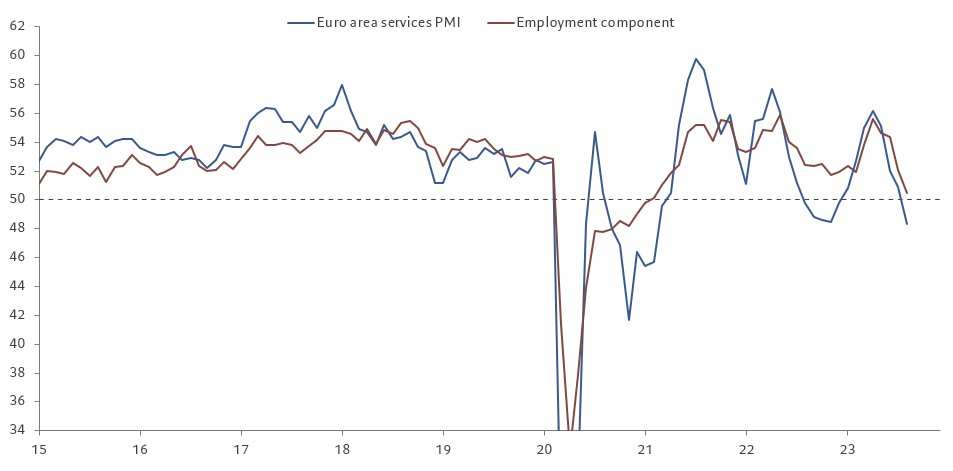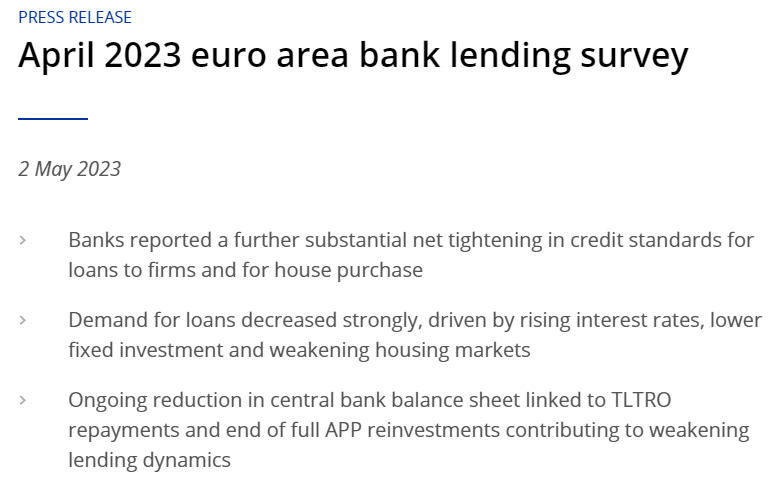Best news from the ECB's Bank Lending Survey: TLTRO used largely to grant new loans to corporates, easing credit standards slightly. 

Worst news from the ECB's Bank Lending Survey: demand for loans to enterprises declined for the first time in 6 years, mostly driven by developments in France and Spain. 

Overall no clear sign that the ECB is getting closer to the reversal rate (compared with the previous BLS) but a few warning signs that, well, economic growth matters more than anything else. #BLS
• • •
Missing some Tweet in this thread? You can try to
force a refresh


















